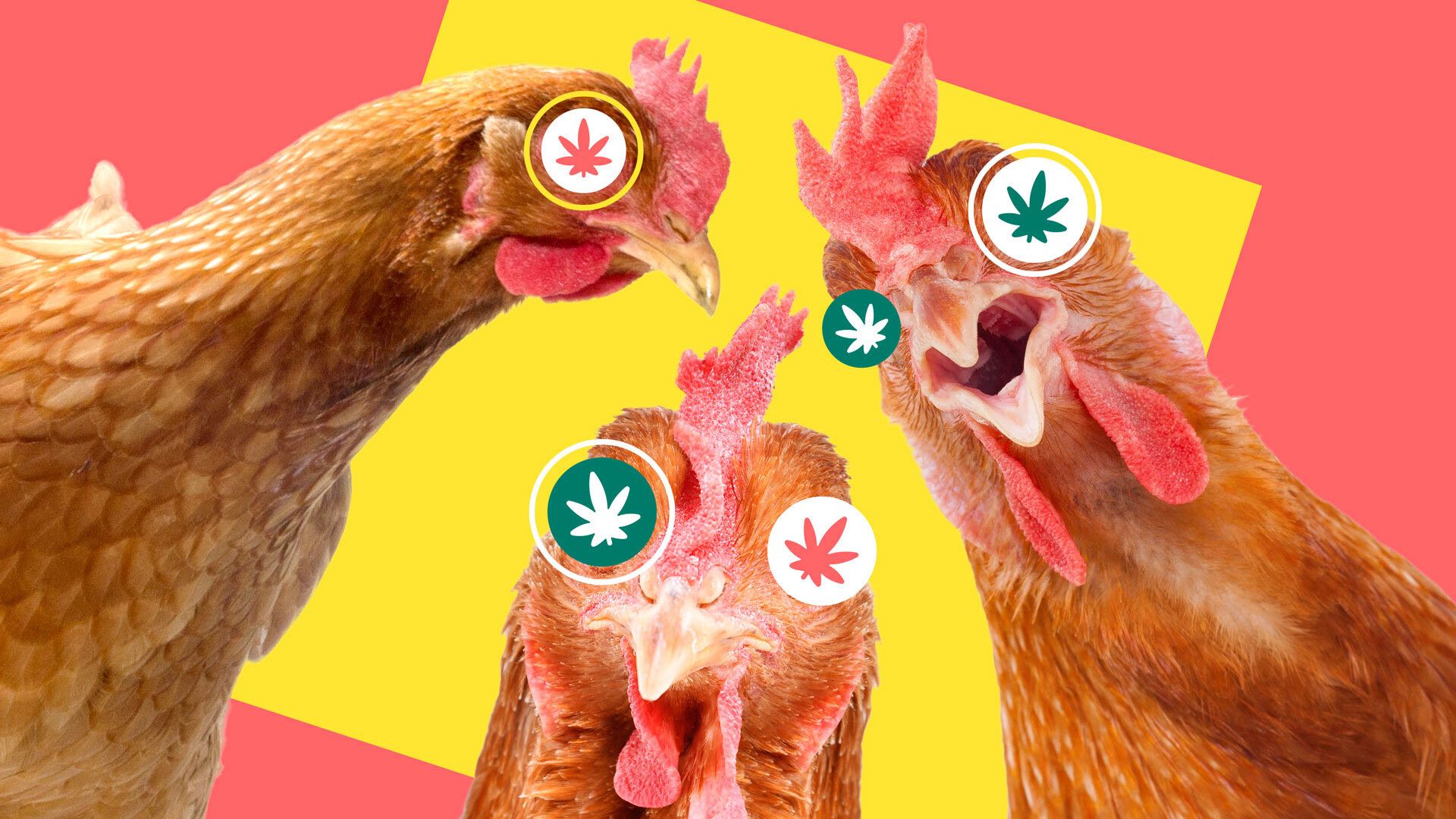
Why do Thai farmers feed cannabis to chickens?
A farm in northern Thailand reports better meat, fewer diseases and more weather-resistant chickens after using cannabis in their diet.
Could Cannabis Make Chickens Faster, Better, and Stronger? A farm in Thailand is studying the potential health benefits of administering the plant.
Thailand became the first Asian country to legalize medical marijuana in 2018 and continues to be at the forefront of destigmatization and social change. They continue to be horny disruptors and this time they’re making headlines by using cannabis in chicken feed.
Leftover pot leaves inspire innovation in Lampang
A farmer in the northern Lampang region who has a license to grow medicinal cannabis was curious about what to do with all the extra biomass after his cannabis harvest. Ong-ard Panyachatiraksa, with support from Thailand’s Chiang Mai University, decided to use cannabis leaves on a group of chickens that failed to respond to antibiotics for avian bronchitis.
According to The Guardian, university academics have been studying 1,000 chickens on the farm since last January to see how the animals reacted when cannabis was mixed into their feed or water. They used leftover leaves that were ground up into fodder or boiled for “marijuana water.”
Stoned for Science? Not really. The chickens were not given amounts that would (probably) cause psychoactive effects such as a high.
While the completed research has yet to be published, Chompunut Lumsangkul, an assistant professor at Chiang Mai University’s Department of Animal and Aquatic Sciences, says the chickens that were given cannabis had higher-quality meat and eggs, fewer antibiotics (or none at all !) needed and were more resistant to bad weather.
In addition to the perceived health benefits, these coveted weed chickens also fetch a higher price at local farmers markets. According to Panyachatiraksa, chickens are generally sold for 60 baht (US$1.70) per kg, but his chickens are selling for twice that.
Medicinal cannabis is part of the holistic Thai tradition
“It is the local wisdom of Thai people to use cannabis [leaves] as a food additive – mixing as an ingredient to make chicken noodles. People put it in the soup to make it taste better,” says Lumsangkul, who wants to understand the science behind the practice.
Panyachatiraksa notes that the price of cannabis in Thailand is still too high for farms to easily incorporate into chicken feed, but that recent legislative reforms could change that. “As time goes by and we can grow more, it will get better,” he said.
The study comes at an important time as Thailand’s National Farmers Council warns that antibiotics in chickens and eggs can harm consumer health, potentially causing allergies and impairing immunity. Unlike antibiotics, cannabis does not appear to leave any residue in the food that people consume. At least in these doses.
Could Cannabis Help Reduce Antibiotic Dependence?
Further research is needed to better understand this relationship. Lumsangkul, who led the first study, notes that there isn’t enough data yet to know if cannabis can replace antibiotics in chicken farming.
Lumsangkul is planning a second study in which she will examine potent cannabis extracts to test their effects on disease and mortality rates in chickens.
If the results are confirmed, Lumsangkul’s cannabis could become an important tool in transforming the poultry industry both in Thailand and internationally. Antibiotics in meat have long been a topic of discussion as more research shows potential health concerns.
Ashley Keenan
Ashley Keenan is the Canadian Editor at Leafly and a freelance journalist, consultant and patient advocate in the cannabis industry.
Check out Ashley Keenan’s articles
By submitting this form, you are subscribing to Leafly news and promotional emails and agreeing to Leafly’s Terms of Service and Privacy Policy. You can unsubscribe from Leafly email communications at any time.

Post a comment: